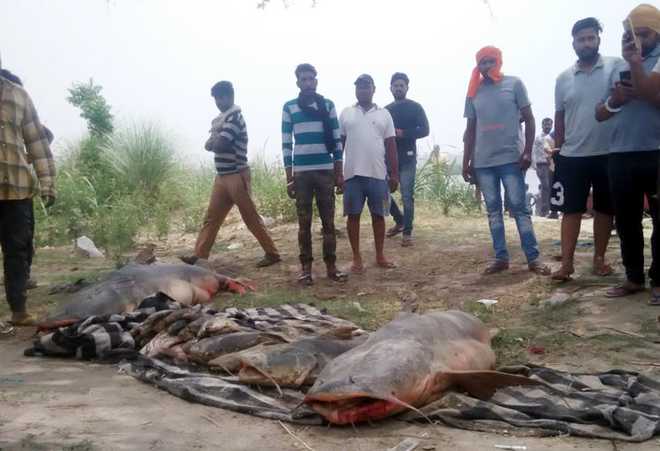
A stink of complicity in subverting norms and flouting laws can be smelt far and wide as more details emerge about the spill of molasses from a sugar mill/distillery in Gurdaspur. An overflowing tank was the immediate cause of the spill of the by-product of sugar making, which is used for the production of liquor. Allegations of improper storage, of pressure to take in more sugarcane than the mills' capacity, of flouting pollution control norms, all point towards the feeling of impunity which the mill owners had. This was, no doubt, a result of their being very big businessmen with political clout. There should be a through, time-bound investigation, and if found guilty, the mill-owners must pay for the damage they have caused to the environment and the aquatic life in the river.
River water in Punjab is a precious resource. Most rivers run low, except during the monsoon. This, no doubt, made the effluent's effect much more deadly. In any case, industrial pollution is the bane of rivers, as is untreated urban sewage. There is an acute shortage of sewage treatment plants (STPs), and even those that exist work intermittently. Owners of various industries have been largely successful in resisting the Punjab Pollution Control Board's (PCCB) efforts, often knee-jerk, to rein in the discharge of untreated effluents.
The Tribune has often highlighted the damage being caused to water bodies by untreated effluents. It is unfortunate that treated effluents from less than 20 plants do not meet the requirements. Most of the 87 effluent plants are non or semi-functional. In Punjab, 99 cities do not have STPs. The river Beas is particularly vulnerable since it hosts aquatic life, including the endangered blind river dolphins and the recently re-introduced gharials. Water pollution caused by urban sewage and industrial effluents is poisoning the environment. Even as local bodies should be given funds for STPs, the PCCB must be empowered to effectively enforce the law and proactively prevent such incidents from happening again.



























